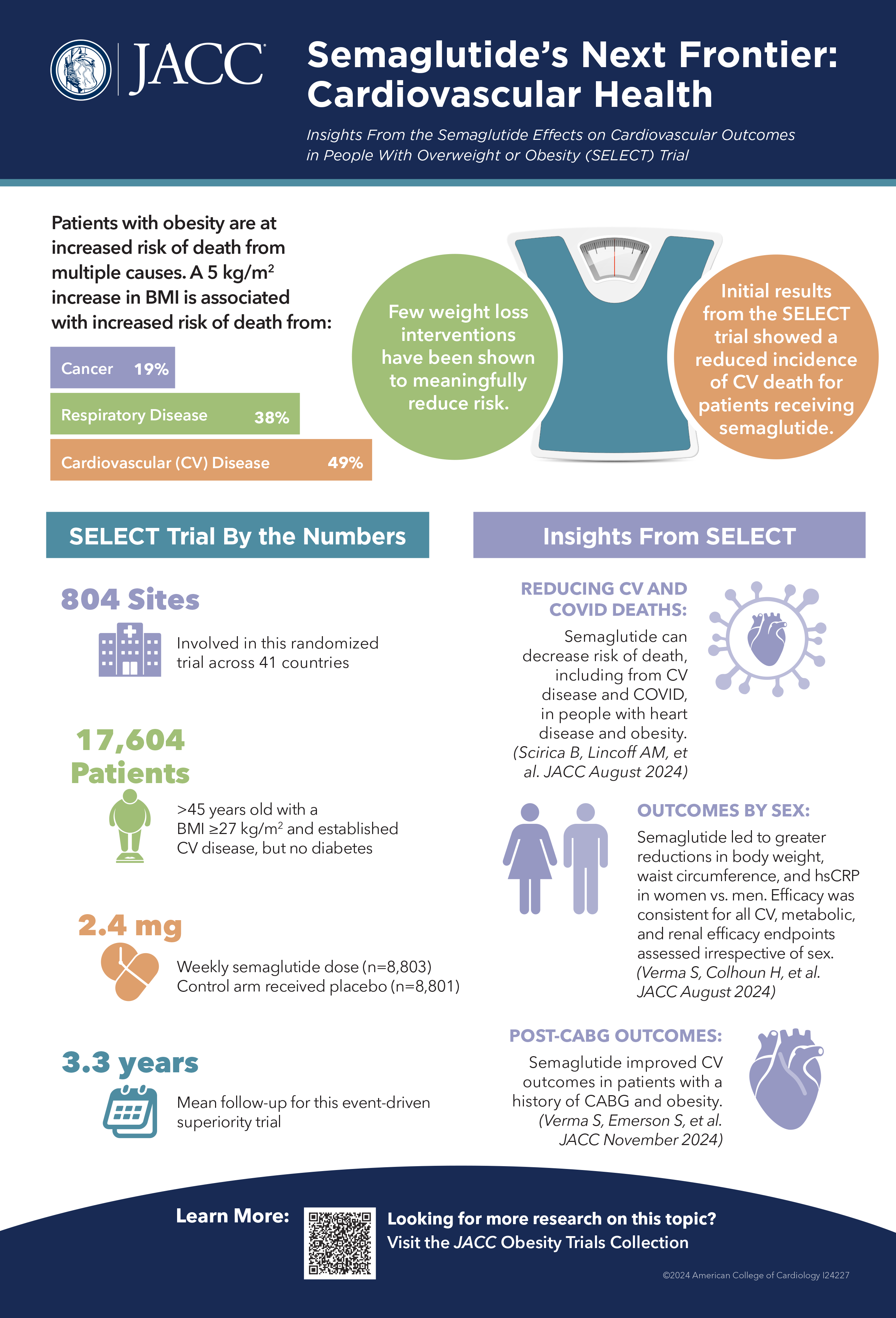Anti-Obesity Drugs, Lifestyle Interventions Show CV Benefits Beyond Weight Loss
Popular anti-obesity drugs continue to show cardiovascular benefits beyond weight loss, according to new research published in JACC and simultaneously presented at AHA 2024.
Among the highlights:
Semaglutide Improved Cardiac Outcomes in Patients Who Had Cardiac Bypass Surgery
In a secondary analysis of the SELECT trial, patients who already had cardiac bypass surgery and are living with obesity or overweight but not diabetes were randomized to receive once-weekly semaglutide or placebo to determine if it improved cardiac outcomes. In the analysis, 2,057 participants had a history of CABG and 15,547 did not. Those with CABG were older (65 years old vs. 61 years old), 84% were male vs. 70%, 2.1% were Black vs. 4%, and they had a lower BMI (31.9 kg/m2 vs. 32.1 kg/m2). Semaglutide led to a consistent reduction in major adverse cardiovascular events in both groups, but the absolute risk reduction with semaglutide was greater in those with a history of CABG (2.3% vs. 1%). Semaglutide was also shown to reduce the incidence of diabetes in the CABG group.
Weight Loss Via Lifestyle Intervention Can Change Cardiac Biomarkers
A secondary analysis of the LookAHEAD trial showed that lifestyle interventions targeting weight loss for type 2 diabetes patients led to a change in biomarkers associated with higher risk of cardiovascular disease and heart failure (HF). Researchers found that lifestyle interventions led to sustained reductions in hs-cTnT at one and four years follow up and a rise in NT-proBNP at one year attenuated at four years. Changes in these biomarkers are clinically relevant for patients with type 2 diabetes, as the researchers found that patients with elevated NT-proBNP and hscTnT were at greater risk of future ASCVD, and that patients with elevated NT-proBNP were also at greater risk of developing HF.
"These studies reinforce the potential of GLP-1-based therapies not only to aid in weight loss but also to transform cardiac health, offering hope for patients living with obesity and cardiovascular disease," said Harlan M. Krumholz, MD, SM, editor-in-chief of JACC. "As the science evolves, we are achieving a deeper understanding of how weight loss, and treatment with these medications, can improve outcomes across diverse patient populations with obesity."
A secondary analysis of the SUMMIT trial looked at the effect of tirzepatide on cardiac structure and function in 106 patients from the main SUMMIT study with HF with preserved ejection fraction (HFpEF) and obesity. Read more on the SUMMIT trial, here.
Clinical Topics: Cardiac Surgery, Heart Failure and Cardiomyopathies, Invasive Cardiovascular Angiography and Intervention, Cardiac Surgery and Heart Failure, Acute Heart Failure
Keywords: American Heart Association, AHA Annual Scientific Sessions, AHA24, Diabetes Mellitus, Type 2, Heart Failure, Glucagon-Like Peptide 1, Obesity, Coronary Artery Bypass

